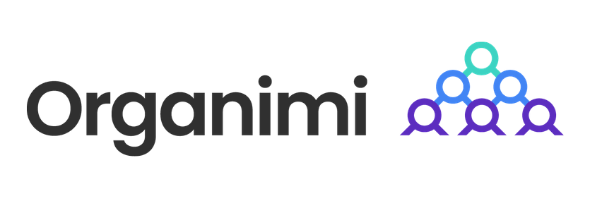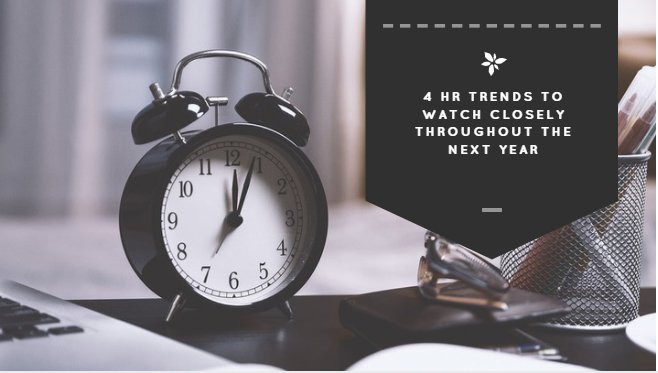A year can make a big difference for human resources professionals. In 2018, the changes have been as rapid as ever. HR departments across the world are playing a huge role in controversies that have captivated onlookers and forced companies to change the way that they look at specific issues related to those controversies. The #MeToo movement and subsequent fallout from it have placed additional strain on HR teams that are placing increased focus on harassment training and inclusion within the workplace.
The next year won’t just be about the MeToo movement, although it will play a large role. HR departments everywhere will play a crucial role in re-shaping the workplace for a new generation. Over the course of the next year, pay special attention to these HR trends, which are undoubtedly going to play a large role in the careers of HR professionals.
The CHRO Role Will Change
The Chief Human Resource Officer (CHRO) role is one that has been in flux for the last few years, with duties and expectations that are constantly shifting with the times. As technology has opened new channels for communication and the problems that come with it, HR departments have been forced to take a good, hard look at themselves and their place within their company.
Big data has played a huge role in the last half-decade of business and has also been playing a huge role in the development of HR as well. CHROs will be expected to have an understanding of statistics and in large companies, may be expected to leverage big data to improve their department. This represents a shift from a more traditional HR model to evidence and data-driven HR that tries to get more done with less. CHROs must be aware of the experience that their employees are having from entry level up, and must be quick to react to fix issues. CHROs are required to be on top of the latest HR trends, designing plans to stay ahead of the game.
Increased Focus on Employee Experience & Branding

HR is becoming more focused on employee experience and employee brands as time goes on. Employees value organizations that value them as well. No one wants to feel like they are some unnamed cog in the machine to the executives. They want their work to be appreciated and to be treated with respect.
Organizations and HR departments must be able to design employee experience from the ground-up to meet expectations and sell themselves to future employees. You have to sell an idea of what working for your company would be like, then make good on that promise as they continue to advance through the organization.
The Skills Gap Will See Increased Focus
The skills gap is a hot topic in the HR world. It’s a topic that is becoming increasingly relevant as baby boomers continue to work toward retirement. Employers are already feeling the heat and working to shore up their pipelines of talent to reduce the impact of the forthcoming skills gap.
One popular route many companies have taken is to partner with local schools and launch new initiatives in large local cities to get their company in front of potential prospective employees. Being willing to train and teach the skills that your company needs could be the difference between an empty pipeline of talent and a full one, but can be an expensive endeavor.
In the next year, HR professionals may see a shift toward a culture of skill development as employers continue to shift their own priorities. With the gig and freelance economies in full swing, many companies are looking to plug talent gaps with contracted or project-based work, which can be tricky for old-school HR pros to navigate.
Increased Harassment and Inclusion Training
The biggest change that we will see as a result of the #MeToo movement is a big increase in harassment and inclusion training. Workplace harassment stories are being featured around the world, and employers are feeling the pressure to take steps to ensure that their workplace is equipped to deal with issues of harassment.
Workers must feel safe within the offices, and supported by the company’s leadership while at work. This probably seems obvious, but one of the biggest issues that companies face is undoing decades of improper workplace culture, no matter how ingrained it has become.
There is no easy road to achieving a workplace that is completely harassment-free. It’s an ideal outcome that all HR teams should strive for, and one that will come from years of company culture work, but is critical for long-term success. So how should HR teams react? Do they need to provide more education to employees? Should employers step in with stricter rules regarding workplace relationships and communication? In all likelihood, the best route is some mixture of the two, but finding the right balance will be difficult.
Financial Wellness Education

With baby boomers retiring and on the cusp of retirement, organizations are seeking younger talent to fill the holes. But, hiring younger talent comes with its own drawbacks, including that younger workers aren’t as experienced financially.
With a younger workforce, and companies striving to help their employees to live happier and healthier lives, it is more important than ever that organizations step in to provide some financial training to their employees. College students are graduating with more debt than ever before, and some of the responsibility of financial responsibility training must fall on employers to maintain a healthy workforce.
An Interesting Year Lies Ahead for HR Trends
Times are changing faster than ever for HR professionals. Not only are they required to know more tools, software, and skills than ever before, but unique cultural challenges have become a staple of the job. This combined with the rise of the freelance and gig economies have introduced new challenges for HR teams that will only continue to become bigger focuses moving forward. But the changes aren’t only for HR teams. They will reverberate throughout entire organizations.
The next few years will play a critical role in the profession. These HR trends are here to stay and will affect the profession for the foreseeable future. As an HR professional, putting yourself in the best possible position for success means embracing these themes head-on and being willing to come to the forefront of their company’s response. Keep a close eye on these HR trends and utilize them to your advantage when moving up the ladder.

